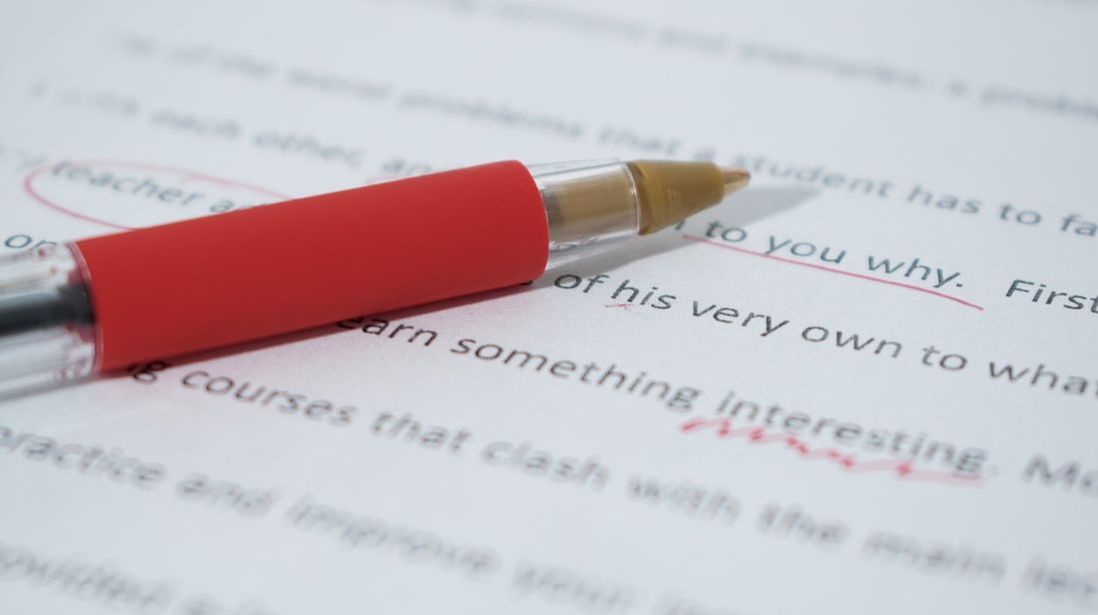|
By guest author Bronwyn Green You actually need an editor. No, really. You do. Oh, you have a degree in English? Sweet. Me, too. * high fives you * But you still need an editor. So do I, and I am an editor. The problem is our brains. Our beautifully creative, efficient brains. Our brains know what our books are supposed to say. So, they thoughtfully fill in the missing words as we proofread. They know that we always reverse exhibitionism and voyeurism and helpfully process the meaning we intended rather than the one we wrote. Our brains are so busy being helpful with the mental corrections, they don’t notice the plot holes, the timeline missteps, the POV skews, or the characters acting against the personalities we’ve established. We see the story playing out in our heads, so we typically don’t catch these issues in the text. And while your mom, your college roommate, your brother, your kid’s babysitter who writes a lot of fanfic might all be awesome at proofreading, but unless they actually have professional fiction editing experience, these are not the best people to edit your book even if they’re the cheapest.  There are many different kinds of editors, and even if they’re all great, they’re not all right for you. Spoiler alert: they’re not all great. But more on that in a minute. The first thing you need to look for on your quest to find the one is a fiction editor. If you see someone listed as a technical editor, just keep swimming. While a technical editor may know his/her/their way around semicolons, project manuals, and grant proposals, this is not person you want editing your urban fantasy novel—or any other novel. You need someone who knows the ins and outs of story structure and character development. Now that we’ve narrowed your search parameters a bit, we need to take a look at the various types of fiction editors. Content editors do the majority of the heavy lifting in the editorial world. These are the people who help you see and fill your plot holes, make sure your world building makes sense and is consistent and point out when your characters are behaving contrary to what you’ve already established—particularly when there’s no motivation to support it. They’ll make sure your character and narrative arcs make sense, that you’re not head hopping, that your pacing is on point, that your dialogue sounds natural, and your narrative flow is as seamless as possible. There are also copyeditors (also frequently called line editors) who focus more on the mechanics of language. They’re going to be looking at sentence structure issues, reference problems, dangling modifiers, word/phrase repetition, consistency in spelling, capitalization, numerals, even font usage. They’ll be the go to for grammar, punctuation, syntax, and spelling. Sometimes, you’ll luck out and get one who’s passionate about checking etymology in your historical novel. A good line editor will also keep an eye out for character and plot. And finally, there are proofreaders. Proofreaders find typos, missing words, missing or sometimes incorrect punctuation. They may also point out continuity issues within the story. Please note: there are many content editors who combine content editing with copyediting and many proofreaders who combine proofreading with copyediting. These are typically the kind of people you might find correcting sale signs in the produce section of grocery stores. Avocados are on sale—not avocado’s!—not that I would know anything about that, mind you. But until you get to know more about your potential editor, you won’t know what kind you’ve got. Which brings us to our spoiler alert. Not all editors are great. Not all editors are even very good. A few years ago, I met a lovely woman at a conference who’d decided to self-publish. She was telling me all about her wonderful editor who loved her book. The author was so excited about her upcoming release. Well, I picked up a copy of that book, and I wanted to cry for her. The single page prologue head hopped between three or four points of view, the verb tense was all over the place and apostrophes were misused to pluralize instead of indicating a possessive. We won’t even talk about commas. The important thing to remember is that anyone can hang out a freelance editing sign. Not everyone should.  Hiring an editor can be a daunting, if not downright terrifying, experience. But it doesn’t have to be. First off, you have to know where to look. There are plenty of options, but one of the best doesn’t require signing up for yet another account. Talk to your friends. Talk to the indie authors you admire and whose books you adore. Ask them about their editors. Ask them what they like about their editors. Find out what they don’t like. Ask if the editors are accepting new clients. If so, ask for their contact info. Word of mouth is often the best method of finding someone who will be a good fit for you. Some questions you might want to ask these authors are:
If you don’t get anywhere with that method, there are other options. However, they do require signing up for another account. These are the sites I’ve heard the best things about. Upworks Reedsy Guru Freelancer Freelance Writers Den  Let’s say you’ve got some editors you’re interested in, and you’re wondering how to choose. First, I’d recommend checking out each person’s web presence and social media accounts. No, it’s not just because I’m nosy. But, it’s important to see who you’d be dealing with. Some people are lovely during email interactions, but then you see them complaining about clients on Twitter or Snapchatting portions of a client’s edit. Look, I’m not saying that there aren’t clients out there who might make their editors a bit stabby. However, it’s highly unprofessional to vent about those clients via social media. Even if the editor isn’t naming the client in question. If you see an editor doing that, cross them off your list.  Now that the playing field has been pared down a bit, it’s time to ask the editors some questions. Some things you might want to inquire about are:
One of the most important reasons to request a sample edit is not only to see what the editor’s editing style is like, but also to determine what kind of edits your story needs. Sometimes, people think they only need proofreading or a light copyedit, when in reality, they need an in-depth content edit. It’s often difficult for us to determine the level of edits we need on a story. We’re just too close to it to have that kind of objectivity. Let’s say you get sample edits of your first chapter from four editors. What should you look for in these edits?
 How much should you expect to pay? That question is one of the biggest considerations in this whole process because you’re spending money in hopes of making more money. The current average cost (at least as far as my research goes) is as follows: Proofreading: .003 cents - .02 cents per word Copyediting: .006 cents - .04 cents per word Content Editing: .008 cents - .08 cents per word Of course, you’ll find some that are much lower and some that are much higher. But price doesn’t indicate quality which is why it’s important to look at all the other factors, too. A good editor can help make an average book great and can be the difference between glowing and scathing reviews. I don’t know about you, but I want to put out the best books possible, and to do that, I depend on my intrepid and awesome editor. |
|
ROMANCE AUTHOR SERVICES
Romance novel blurb help Romance Remedy program Referral program Romance author services
|
FREE Romance Rehab newsletter: Subscribe here
KnockinBooks LLC is a participant in the Amazon Services LLC Associates Program, an affiliate advertising program designed to provide a means for sites to earn advertising fees by advertising and linking to Amazon.com.
© 2020 KnockinBooks LLC



 RSS Feed
RSS Feed
